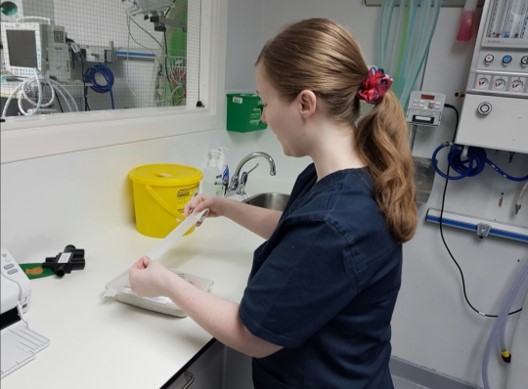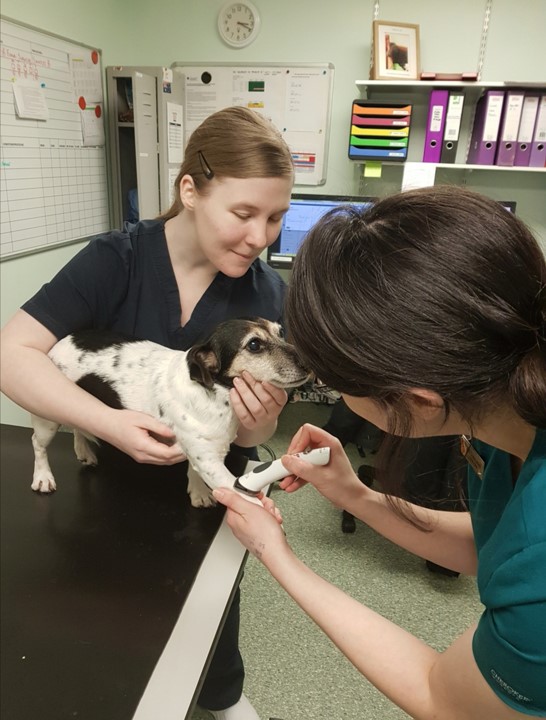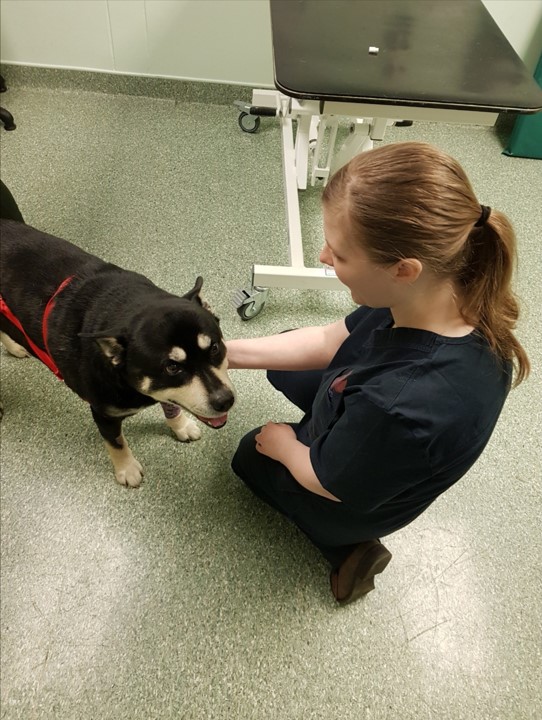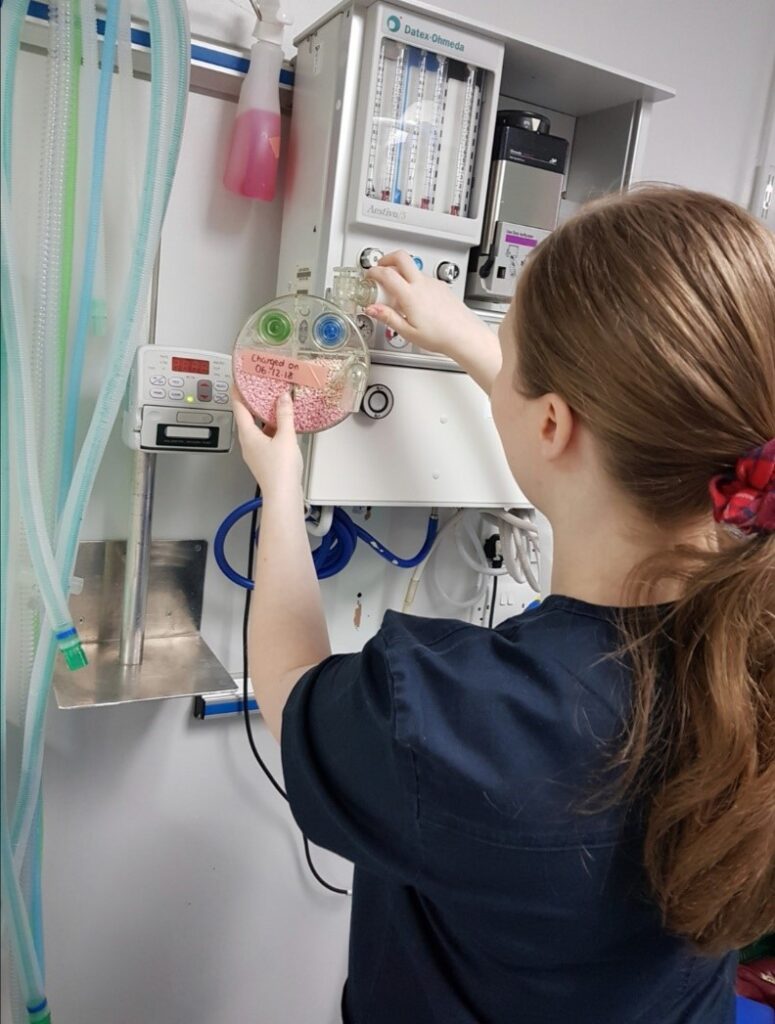VCA Campaign
1 February 2024
“If you take a risk and you fail, then at least you had the courage to step out of your comfort zone”

This year, BVNA are working on raising the profile of Veterinary Care Assistants (VCAs). Dependent on the setting, the VCA may be known by a variety of different names or job titles – but their role is vital in order to support vets and student/registered veterinary nurses (SVNs and RVNs) to provide care to patients, and ensure the smooth running of the practice.
Often, the impression is that VCAs will automatically progress to become a veterinary nurse – but we want to champion VCAs as a role in their own right. This year, we’ll be showcasing some of the diverse career opportunities available, and how VCAs can embrace and utilise their skills.
In this blog we hear back from Sarah Little, who is currently an Anaesthesia Assistant (a VCA-equivalent role, supporting vets and veterinary nurses) at The Royal (Dick) School of Veterinary Studies. In this second article, Sarah discusses her current role as Anaesthesia Assistant, as an example of how the VCA role can evolve and provide new opportunities.
Are you a VCA looking for more support? As the professional representative for veterinary nursing, BVNA are here for you too! Join us so your voice can be heard – more information about our Associate membership package can be found here; http://bvna.org.uk/membership/
“My name is Sarah Little and I have been working at The Royal (Dick) School of Veterinary Studies as an Anaesthesia Assistant since October 2017.

“The Anaesthesia Assistant role was a new position that was created within the R(D)SVS and I was looking for a new career challenge; the position seemed too good to miss! It’s safe to say there is no such thing as a typical day, which makes my job all the more exciting! The first thing I tend to do when I start is check drug/stock levels and prepare anaesthetic machines, beds, and induction equipment for patients. I’m then often asked to help restrain patients for pre-medication/inserting an intravenous catheter/induction/etc. When the patient is under anaesthetic, I help the anaesthetist place monitoring equipment and if needed help move the patient to CT/endoscopy/MRI/etc.
“My areas of responsibility include keeping on top of the anaesthesia department, anaesthesia hub, and CT hub, where I check the anaesthetic machines/check anaesthetic gas and oxygen levels/make sure we have enough drugs/stock/etc. Once the patient has recovered from their anaesthetic the veterinary nurses will ensure that their needs are taken care of and I love to help them reassure anxious patients who maybe need a little extra TLC! We primarily see dogs in the anaesthesia department, but I’ve been lucky enough to have assisted with the anaesthetic of a Serval – a wild cat native to Africa.

“Occasionally I have to help out in other areas of the hospital that get busy and this sometimes gives me the opportunity to handle exotic species, such as restraining a chameleon for a blood sample or giving a snake with thermal burns a bath. No matter the species I’m always up for a challenge and I try to make sure our patients have as pleasant an experience as they can whilst in our care.
“I have a lot of additional roles so whenever I get the opportunity, I assist with the various committees that I’m part of, like the Athena Swan Subcommittee, the Career Development Committee, and the Sustainability Committee to name just a few! I’m also very proud to be a Lifeboat Companion for NOMV, where I provide support to veterinary professionals in distress.

“I work alongside a fantastic team of anaesthetists, anaesthesia nurses, and surgical assistants/nurses who have great knowledge and compassion. They will either be anaesthetising patients, recovering patients, or in surgery and I can often be bobbing in-between these areas helping out. I’ve been extremely lucky with my career and I never want to take it for granted. I wouldn’t be where I am today if I decided not to take a risk! My opinion is that if you take a risk and you fail, then at least you had the courage to step out of your comfort zone. It’s much better than to sit and wonder what would have happened if you had decided to take the plunge. My goal is to let VCAs see that their roles can go so much further!”
Thank you to Sarah for sharing her career story. If you’re a VCA and you’re passionate about showcasing the VCA role, we’d love to hear from you to get involved in our campaign. This could include taking part in online discussion panels, writing brief articles, or producing other resources to raise awareness of the VCA role – or any other ideas you may have of your own!
For more information, get in touch with us at bvna@bvna.co.uk.